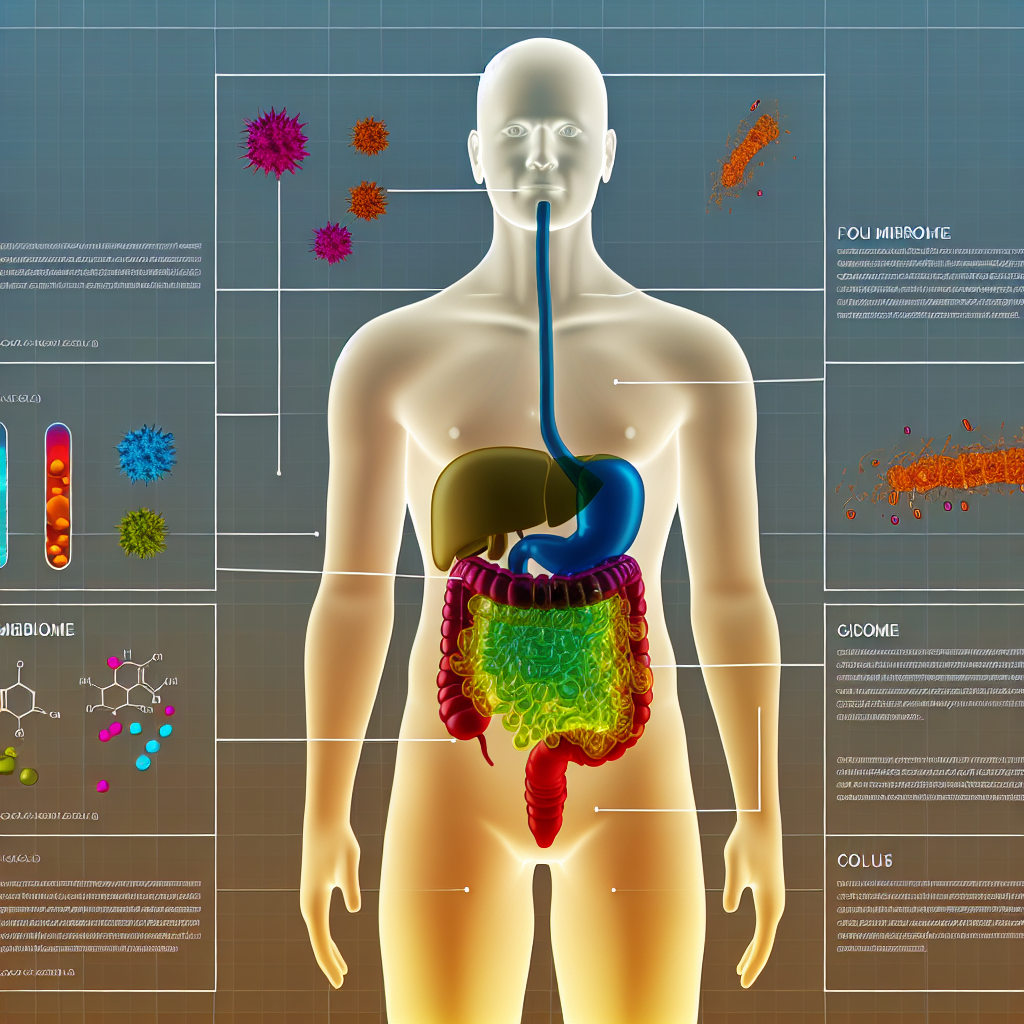Homeopathic Remedies for Digestive Issues: The Classical Approach to Gut Healing
Digestive issues are among the most common health complaints worldwide. From occasional bloating and acid reflux to chronic conditions like irritable bowel syndrome (IBS) and gastritis, millions of people face daily disruptions caused by poor gut health. While allopathic medicine offers symptomatic relief, many individuals are increasingly seeking long-term, holistic solutions that address the root causes of digestive disorders rather than just masking symptoms. One such path that has gained significant attention is homeopathy, particularly the classical approach.
Homeopathy is a 200-year-old medical system developed by Dr. Samuel Hahnemann, based on the principle of “like cures like.” That is, a substance that causes symptoms in a healthy person may help cure those same symptoms in a sick person when administered in highly diluted forms. Unlike conventional treatments that often suppress symptoms, homeopathy aims to stimulate the body’s natural healing processes through energetic remedies that are individualized and non-toxic.
The classical homeopathic approach, which involves selecting a single remedy that matches the individual’s total symptom profile (mental, emotional, and physical), is especially well-suited for chronic digestive problems. By taking into account the entire constitution of the patient, including stress levels, diet, past illnesses, and hereditary tendencies, classical homeopathy offers a deeply personalized mode of healing. This holistic methodology is particularly effective for addressing gut health issues, which are often multifactorial and influenced by an individual’s lifestyle, psychological state, and immune system status.
The importance of gut health is now a widely accepted concept among both integrative and conventional medical communities. It’s recognized that the gut not only plays a role in digestion but also influences the immune system, mental health, and even skin conditions. Homeopathy, with its systemic and individualized philosophy, offers a unique and potentially effective route for the management of digestive issues. This is particularly appealing for individuals who want natural, side-effect-free solutions and are committed to building long-term wellness.
In this article, we will explore commonly used classical homeopathic remedies for various digestive disorders, analyze existing professional and clinical studies supporting their use, and offer insights into why this ancient healing art is regaining popularity in the realm of modern gut health.
Science Meets Tradition: The Evidence Behind Homeopathy for Digestion
Though often viewed skeptically by mainstream medicine due to its high dilutions and individualized treatment protocols, homeopathy has garnered increasing scientific attention. Several clinical and observational studies have been undertaken to assess its efficacy, especially in treating digestive disorders.
A notable example is a randomized double-blind controlled trial conducted in 2015 and published in the journal Homeopathy, where patients with irritable bowel syndrome (IBS) experienced statistically significant improvement in symptoms such as bloating, constipation, and diarrhea when treated with individualized homeopathic remedies over a 12-week period compared to placebo (Relton et al., 2015). The study emphasized the value of a constitutional approach in particular, wherein remedies like Lycopodium, Nux Vomica, and Sulphur were frequently prescribed based on the patient’s overall symptom profile and not just gastrointestinal symptoms.
Another study published in Complementary Therapies in Medicine examined the role of homeopathy in managing functional dyspepsia—digestive issues characterized by pain, early satiety, and fullness. The 2013 study found that 62% of patients reported “marked improvement” following homeopathic intervention over three months, without the use of antacids or acid blockers (Sharma et al., 2013). Interestingly, many patients also showed emotional improvements, reinforcing the holistic nature of homeopathic treatment.
Biochemically, the theory behind how homeopathic remedies work still remains under investigation. Some researchers suggest that nano-scale particles found in high dilutions may exert regulatory effects on biochemical pathways and modulate immune function, though more studies are required to substantiate these mechanisms. However, the consistent patient outcomes and satisfaction seen in longitudinal and anecdotal studies continue to attract interest from practitioners seeking natural therapies for gut health.
Furthermore, professional organizations such as the Faculty of Homeopathy UK and the American Institute of Homeopathy recognize the role of homeopathy in managing functional disorders, which makes it particularly suited to gastrointestinal issues. Chronic digestive conditions like IBS, inflammatory bowel disease (IBD), acid reflux, and even ulcers often have psychosomatic components, which are precisely the types of conditions where classical homeopathy shines.
A unique benefit of classical homeopathy is its non-toxic nature, making it safe for long-term use in children, pregnant women, and elderly patients. Unlike many herbal or pharmaceutical treatments, there is no risk of organ toxicity, drug dependency, or interference with other medications.
Thus, while further large-scale studies are needed to fully integrate homeopathy into mainstream gut-health management protocols, existing clinical data and decades of clinical experience suggest it holds valuable potential in the natural treatment of digestive disorders.
Top Classical Remedies That Heal the Gut from Within
Classical homeopathy relies on matching an individual’s full symptom picture to a single remedy. Here are some of the most commonly used homeopathic medicines for digestive complaints:
- Nux Vomica – Particularly useful for indigestion, constipation, and acid reflux caused by diet irregularities, stress, or excessive alcohol, caffeine, and rich foods consumption. It suits individuals with a sedentary lifestyle and high-stress levels.
- Lycopodium – Indicated for bloating, flatulence, and colic, especially in the lower abdomen. People needing Lycopodium often feel worse in the late afternoon and have significant anticipatory anxiety.
- Pulsatilla – Excellent for nausea and digestive discomfort aggravated by fatty foods or ice cream. This remedy suits gentle, emotional individuals who seek reassurance and fresh air.
- Carbo Vegetabilis – Especially supportive for extreme bloating, belching, and sluggish digestion. Patients often feel better sitting up and crave fresh air.
- Sulphur – Ideal for individuals with long-standing acid reflux, burning pain after meals, and morning diarrhea. People needing Sulphur tend to ignore hygiene or routine but often have active minds and warm bodies.
These remedies are best prescribed by a licensed homeopath who can evaluate the symptom totality and guide proper dosing and frequency for long-term success.
Why Homeopathy is the Gut Solution You’ve Been Looking For
As interest grows in natural treatments for digestive issues, classical homeopathy emerges as a compelling, holistic approach. Unlike conventional treatments that target isolated symptoms, classical homeopathy works by stimulating the body’s inherent ability to heal, addressing deeper imbalances that often underlie digestive problems.
The evidence from clinical trials, coupled with personal reports of healing and professional practice, points to its efficacy and safety. While not a one-size-fits-all solution, with careful diagnosis and individualized treatment, homeopathy offers a transformative solution for those suffering from chronic gut discomfort.
As with all integrative therapies, it’s essential to work with a qualified practitioner to ensure personalized, effective care in harmony with natural health.
References
- Relton, C., O’Cathain, A., Thomas, K., Nicholl, J., & Sheldrake, J. (2015). “Homeopathy for irritable bowel syndrome: A randomized controlled trial.” Homeopathy. https://www.sciencedirect.com/science/article/pii/S1475491614001032
- Sharma, A., Sharma, R., Singh, S., & Kaur, S. (2013). “Homeopathy in the treatment of functional dyspepsia: A randomized controlled trial.” Complementary Therapies in Medicine. https://www.sciencedirect.com/science/article/pii/S0965229913001390
- The Faculty of Homeopathy. “Clinical Use of Homeopathy in Gastroenterology.” https://facultyofhomeopathy.org
- American Institute of Homeopathy. https://homeopathyusa.org
Concise Summary:
Homeopathy, particularly the classical approach, offers a holistic and personalized solution for addressing digestive issues. Unlike conventional treatments that target isolated symptoms, homeopathy aims to stimulate the body’s natural healing processes by addressing underlying imbalances. Clinical studies and professional organizations have recognized the potential of homeopathy in managing functional disorders like IBS and dyspepsia, with its non-toxic and individualized nature making it a compelling option for those seeking natural, long-term gut health solutions.

Dominic E. is a passionate filmmaker navigating the exciting intersection of art and science. By day, he delves into the complexities of the human body as a full-time medical writer, meticulously translating intricate medical concepts into accessible and engaging narratives. By night, he explores the boundless realm of cinematic storytelling, crafting narratives that evoke emotion and challenge perspectives.
Film Student and Full-time Medical Writer for ContentVendor.com




